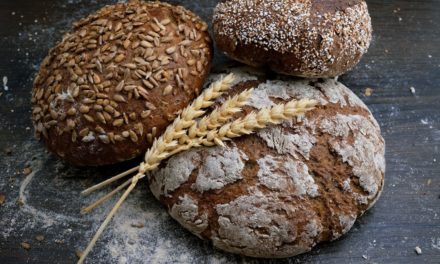Philippians 3:1–11: Righteousness
Introduction
Deep down, all of us are terrified at the thought of being exposed for what we really are. In our work, psychologists call this “imposter syndrome,” a term coined in the 1970s to describe the persistent fear of being exposed as a fraud in one’s field. In pop culture, we love the terrifying thrill of stories about frauds, such as the movie Catch Me if You Can, about the true-life notorious con artist Frank Abagnale, or the television series Suits, about the (fictional) attorney who forged a law degree from Harvard. Even in our subconscious imaginations, who hasn’t dreamt about feeling a mortified when you suddenly realize that you have gone out in public without wearing any clothes?
All of these fears flow from a common source at the Fall, where the first reaction of Adam and Eve to their original sin was to feel a sense of shame at their nakedness: “Then the eyes of both were opened, and they knew that they were naked. And they sewed fig leaves together and made themselves loincloths” (Gen. 3:7). In their innocence, they were “naked and were not ashamed,” (Gen. 2:25), but in their guilt they immediately felt a sense of such deep shame that their first impulse was to cover up. Ever since Adam and Eve sewed together those first fig leaves to cover their shame, every human being has understood this sense of fear at being exposed.
The only difference between us and Adam and Eve, then, is that the fig leaves we use have become more sophisticated. Sometimes, we carefully curate our social media profiles to create a falsely positive image of our lives. Other times, we devote ourselves to doing good deeds, but more out of a desire to feel better about our evil deeds than out of a desire to serve. Still other times, we go through the motions of worshiping God at church to impress those around us, even though our hearts are far from God. No matter how well all of these fig-leaf garments keep our deepest insecurities and vulnerabilities covered up from the sight of the world, we still feel like frauds, living under the constant fear of being exposed.
What we really need, then, is something much more powerful than a simple papering over of our shame. We need to be clothed in a perfect righteousness that doesn’t simply mask our sin and guilt, but that exchanges them for a real righteousness that is bulletproof from condemnation. With that kind of righteousness, we could stand with confidence before even the omniscient Judge of all the Earth.
It is this desperate need for righteousness that stands behind what Paul writes about circumcision, specifically, and the entire Mosaic law, generally. At the most basic level, Philippians 3:1–11 addresses one key question: On the last day, will you depend on some kind of fig leaves to cover over your sin, or will you trust in Christ to give you his own, genuine righteousness through faith? This question is worthy of our closest attention, so let’s work through this passage carefully.
Discussion Questions
1. How do you fear being exposed? What do your fears tell you about where you are putting your hope and confidence? What does your identity as someone “found in [Christ]” (Phil. 3:9) say to your fears? Practically speaking, how might you take confidence in the righteousness that Christ gives to you through faith?
2. What standards of righteousness does the world insist upon? These are not the standards of God’s law found in the Old Testament, but the world has a certain righteousness that it demands with violence. What kinds of actions or words spark outrage? What does the world admire? How sufficient are those fig leaves to cover over unrighteousness in someone? What might it cost you to count those values as loss for the sake of gaining Christ?
3. How is justification different from sanctification in terms of passivity and activity? Can you bring anything that will count toward your justification? By grace, what does God seek in terms of your sanctification? How do you keep the two distinct in your mind and heart when you sin? How do you keep the two distinct as you seek to obey God?
4. What does the resurrection of Jesus mean for believers today, practically speaking? What does the resurrection mean for the Spirit-wrought power you can expect in your life? How does the resurrection transform the way you see your own suffering? What hope does the resurrection give?




